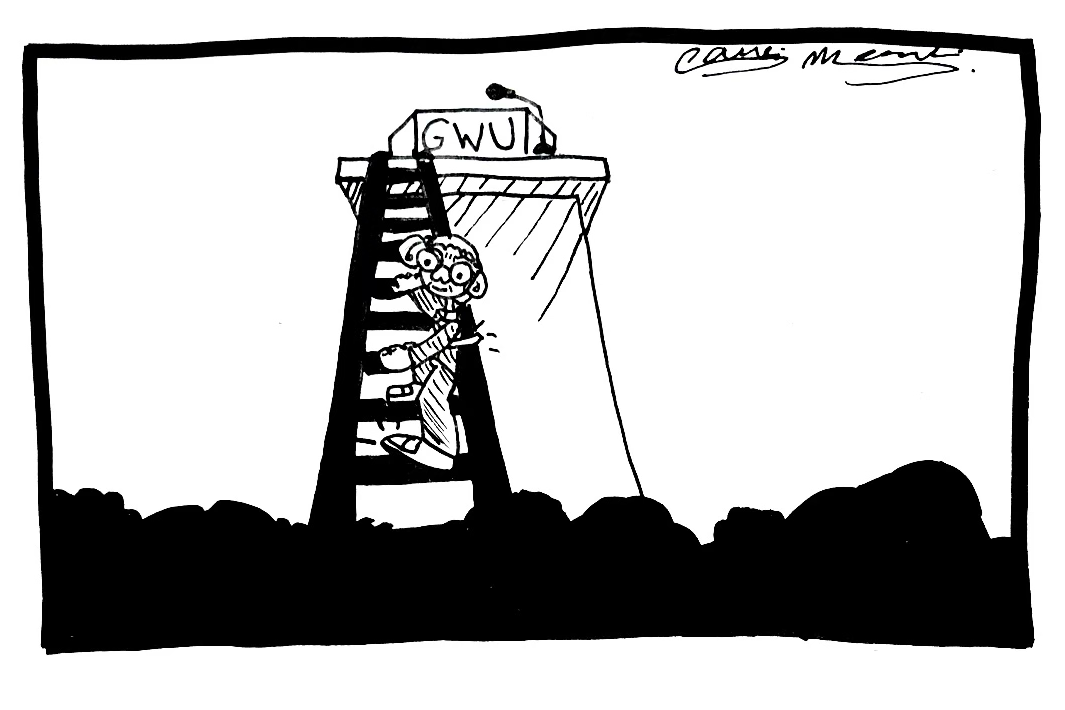Rumors percolated around campus Monday evening that the University Police officers inspected Ivory Tower, Potomac House, Thurston, Fulbright, Munson and Madison halls, Townhouse Row and The West End.
But that didn’t happen. At least not in its entirety.
The truth is, UPD only conducted inspections in two residence halls. In the Alpha Epsilon Pi townhouse on 22nd Street, a drug bust resulted from a routine health and safety inspection. And in Thurston, officers responded to the odor of marijuana in the hallway.
The record has been set straight – but it took two days after the events took place. The University did not release any communications to address students’ concerns regarding what types of searches were happening across campus. And when a small piece of information was released, it was unclear and failed to answer major questions.
It’s standard practice for health and safety inspectors to examine campus housing twice in the fall, once in the spring and once in the summer.
For the most part, students know the drill: A health and safety representative does a visual check to see that smoke detectors are intact, prohibited items such as extension cords are not present and that students haven’t snuck pets inside. Officials leave a tag on the door to indicate that an inspection occurred if the resident isn’t there.
University spokeswoman Michelle Sherrard said Tuesday that the inspections Monday night were routine.
For nearly two days, the most tangible piece of information available to students came from the campus crime log which indicates that Monday evening, UPD busted students for drug law violations at 605 22nd St. and in Thurston Hall. UPD Chief Kevin Hay eventually responded for comment, but it took nearly two days.
That means for two days, students were left largely in the dark, left only with questions that circulated on Twitter, Facebook and across listservs about whether UPD officers would enter their rooms as part of alleged “raids.”
Some suspected that the University had broken room inspection protocol while conducting sweeps in fraternity housing. And while officials say that was false, the widespread panic among the student body should have been quelled earlier. It is unacceptable that the administration did not release information earlier to calm the barrage of rumors.
If the University had been up front with students and stated that there were only two busts in specifically targeted areas, tension would have quickly dissipated. It is the University’s job to dispel rumors and tell students what is going on.
UPD itself is not a transparent institution. Records are closed. Officers wield the authority to arrest and enforce the rule of law – but there is little room for public oversight. Though commissioned by the Metropolitan Police Department, UPD operates at a standard of secrecy.
In such circumstances, it becomes even more critical to maintain an open dialogue with the community and provide information.
UPD blatantly failed in that duty this week.
Campus police exist to create a sense of safety and security. But in this case, UPD did more to incite panic and concern than mitigate it.
The days-long silence that followed only perpetuated a feeling of distrust.





